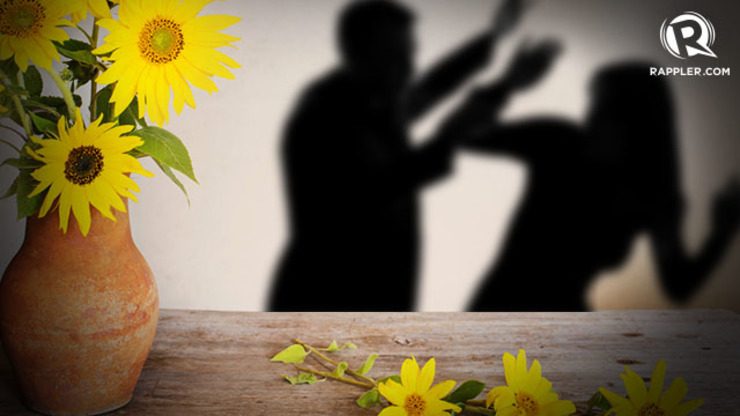SUMMARY
This is AI generated summarization, which may have errors. For context, always refer to the full article.

CALIFORNIA, USA – Is there a reason why victims of domestic violence stay with their abusers?
Heck no. There’s not only one, but countless reasons why they do.
Imagine the person you love becoming moody and quick to anger; wouldn’t you want to help this person change?
What if the person who abuses you is the sole breadwinner without whom your whole family would go hungry? Wouldn’t you want to spare that person, yourself, and your children hardship?
If the person who abuses you cries and apologizes, buys you roses and promises never to hit or curse you again, wouldn’t you want to believe the beating and the yelling will stop?
And what if the person who abuses you begs you to stay because this person can’t live without you and in fact will jump off the highest building if you left: Would you not have second thoughts about walking out the door?
Those who are unaware of the dynamics of abuse say victims deserve what they get because they refuse to leave their abusive partners.
Even victims themselves tend to believe they are responsible for their situation, particularly if they occasionally defend themselves, thus “provoking” the battery.
Abuse that takes place between people who are unmarried (dating) or married (domestic) is much more complex than might seem. The situation is not as simple as two people falling in and out of love, splitting up their possessions, and moving on without each other.
How do I know this?
Full disclosure: I inadvertently took a sabbatical from journalism in 2002 when I joined Community Overcoming Relationship Abuse (CORA), a private nonprofit agency serving survivors and their children. I joined when it was still called the Center for Domestic Violence Prevention, and my responsibility was to educate about the issue and the resources available to help affected families.
To be a credible educator, I attended hundreds of hours of training and earned my state certification as a domestic violence counselor. To be a good counselor I needed to internalize what I had learned, apply it in all my relationships, empathize and not judge, listen and not interrupt, offer options and help the survivor make the decision that potentially would bring empowerment.
Learning about domestic abuse – alternately used with “violence” to include non-physical attacks – taught me to be more open to understand what goes on in the mind and the heart of the person being abused.
Abuse happens all around us, but we may not realize it because of our stereotypical ideas about it.
We think of abuse or violence in physical terms, but other forms of abuse can be just as debilitating and potentially lethal.
We associate victimhood with bruises, poverty and subservience, which are common consequences of domestic abuse, but survivors can be academic achievers and successful professionals, independent, wealthy and prominent in their communities. Anyone who enters a relationship with someone who learned to interact in an abusive manner – by manipulating, threatening, craving attention andinsisting on always getting the final word – could become victims.
People who abuse, on the other hand, do not always yell and curse. They can be soft-spoken and charming, exceedingly generous and solicitous, but for the same end: To be the center of their partner’s universe, to dominate the other.
Domestic abuse is a pattern of behavior where one partner controls the other through manipulation in verbal, emotional, psychological, financial, and sexual, as well as the obvious – physical attacks – that worsen over time and often can be fatal, counselors and educators know.
Unfortunately most people don’t know that abuse occurs in a cycle that starts with the honeymoon, then tension that escalates to explosion, leading to apologies that begin the cycle all over again with the honeymoon phase and so on. The cycle confuses observers andvictims, who point to the honeymoon phase as representing their partner’s true nature and the explosion as a momentary lapse, minimizing their plight, not realizing how the honeymoon gets shorter while the explosion grows longer.
So who would be the most passionate defender of NFL star Ray Rice after a casino elevator video recently went viral, showing him throw a fist at his then-fiancee, now wife, and knock her out cold?
When Janay Rice went on Instagram chewing out the media for causing the loss of her husband’s means of livelihood, survivors responded with their own reasons for staying with their perpetrators:
To be a good wife. For our children. Because it’s my duty. That’s what my pastor told me. His family will disown me. Where would I go?
What is not being mentioned in the media firestorm over the Rice video is what happens once the perpetrator is penalized. Who gets blamed for the humiliation? Loss of income?
How can Janay Rice respond other than the way she has when football is her husband’s life and their family’s future? And why wouldn’t she be supportive after all that when by this time she may already be blaming herself for fighting back – as the video shows – and being flung by his mammoth arm against the wall, shutting the daylights out of her?
When she said in a TV interview that the incident was an isolated case, she gave away her lack of awareness of the dynamics of domestic violence. And that makes for a most dangerous outcome. – Rappler.com

Philippine News executive editor Cherie M. Querol Moreno is founder-executive director of nonprofit ALLICE Alliance for Community Empowerment and a Commissioner with the San Mateo County Commission on Aging.
Add a comment
How does this make you feel?
There are no comments yet. Add your comment to start the conversation.